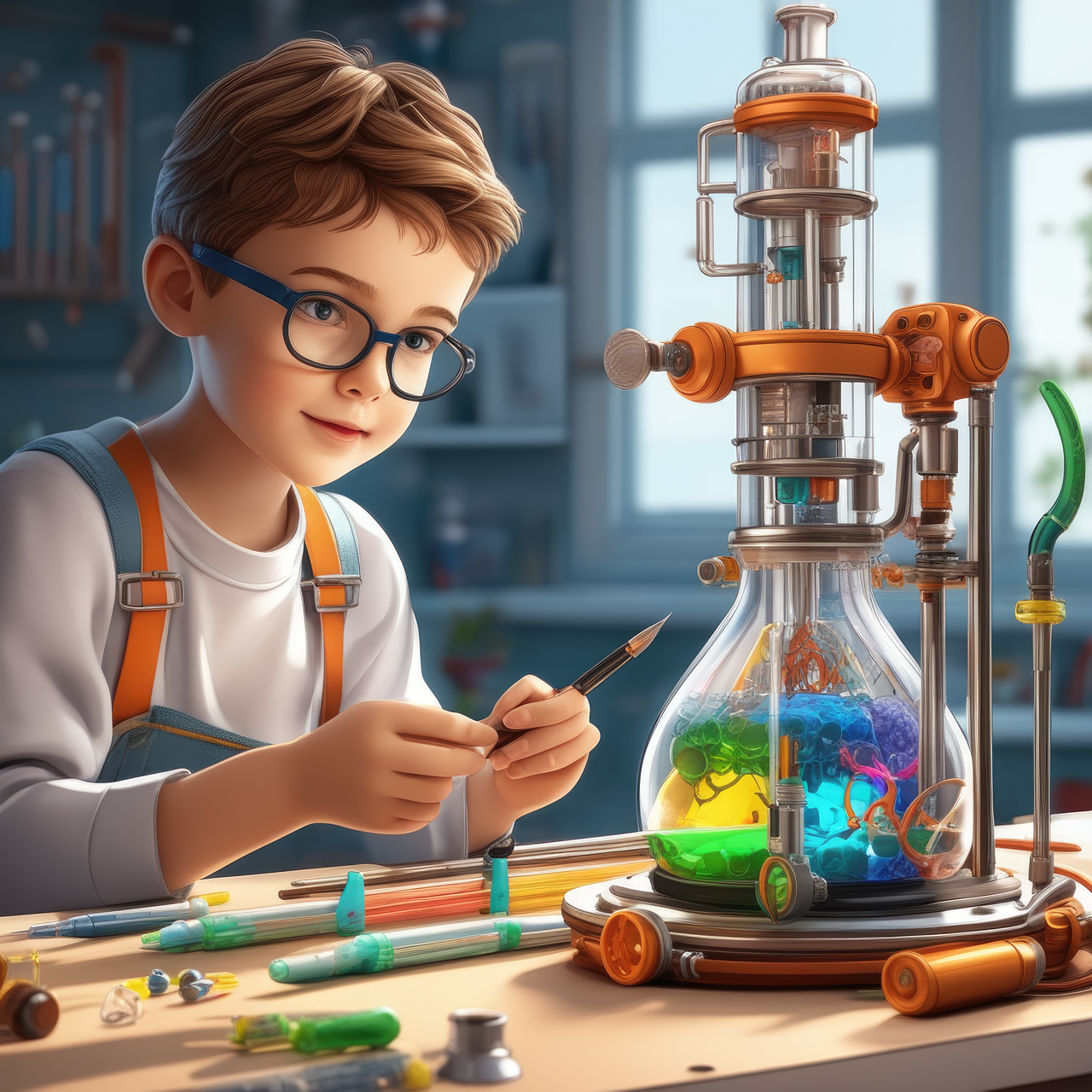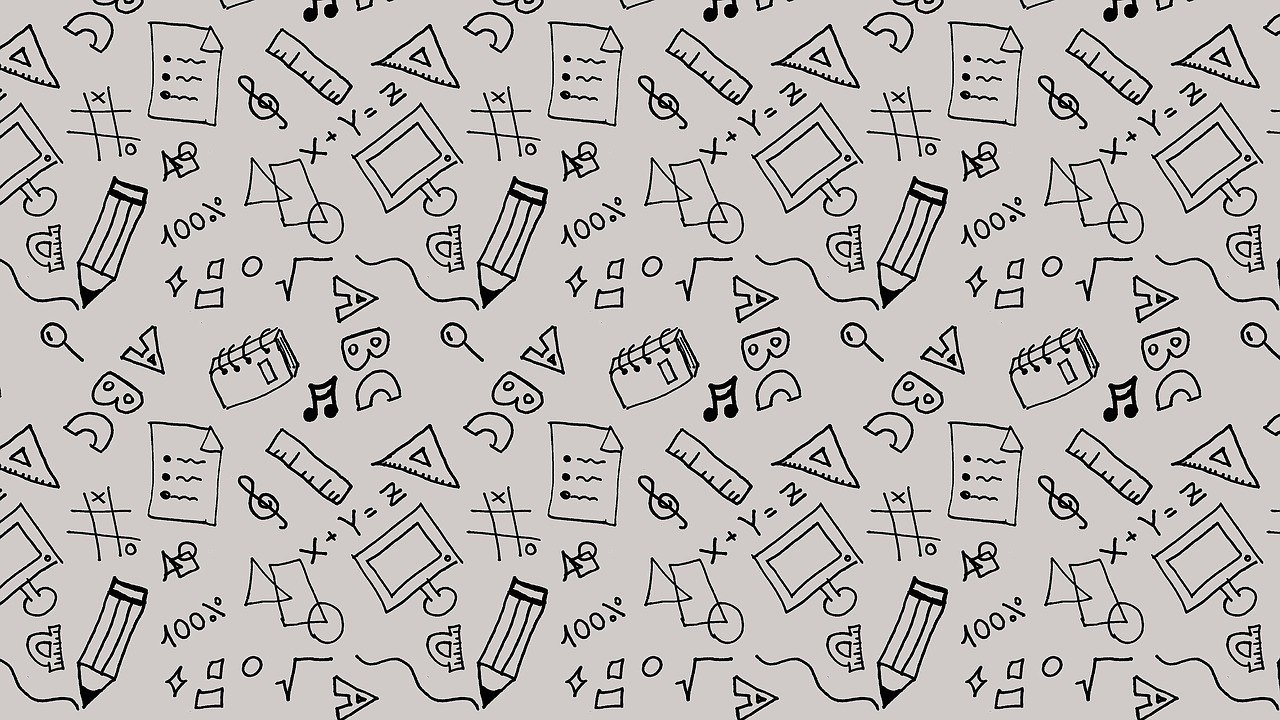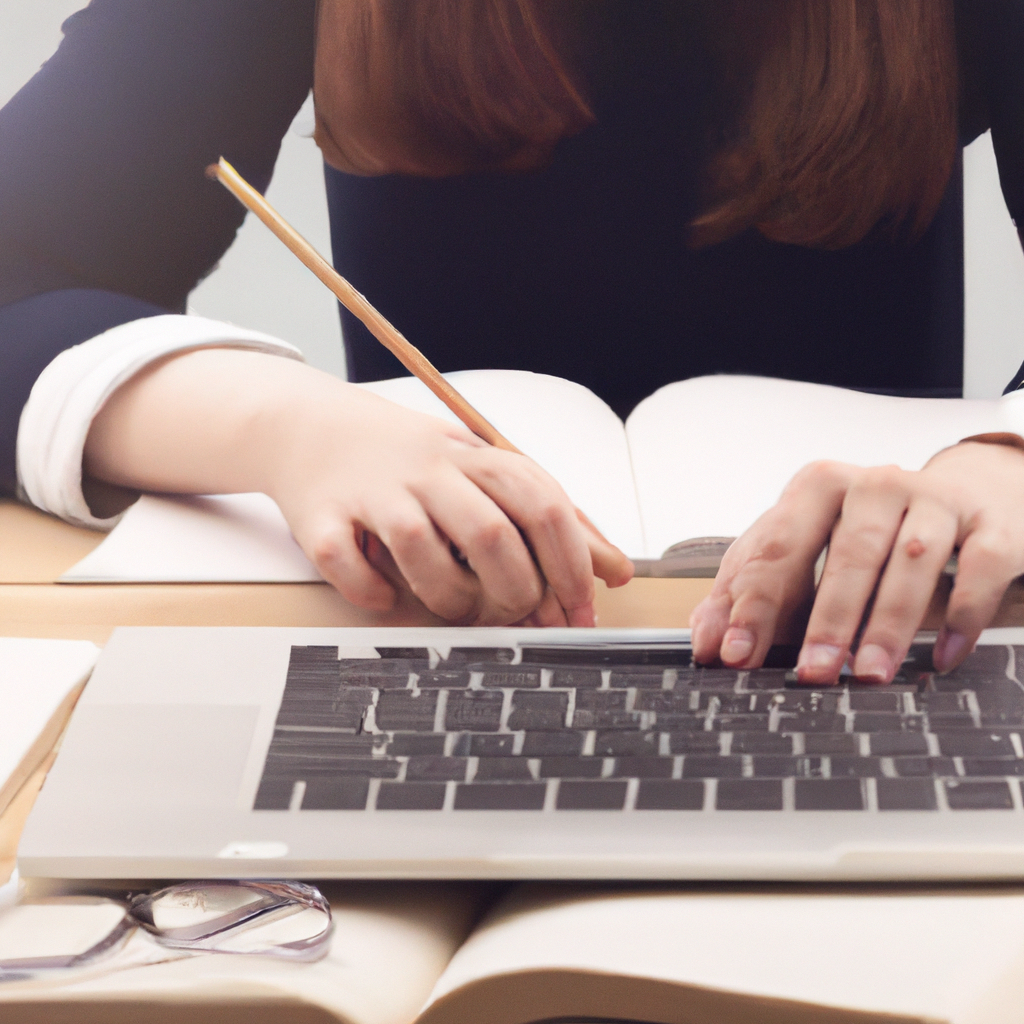Are you ready to embark on a journey of discovery through educational and learning experiences? In this article ‘Unlocking the Transformative Power of Educational and Learning Experiences’, we will explore the immense value of these experiences and how they can shape and broaden your knowledge and understanding of the world around you. From formal education to informal learning opportunities, we will delve into the various ways in which you can enhance your skills, ignite your curiosity, and embrace lifelong learning. So, fasten your seatbelts and get ready to unlock a world of possibilities as we explore the transformative power of educational and learning experiences together.

Types of Educational and Learning Experiences
Formal Education
Formal education refers to the structured educational system that is typically pursued in schools, colleges, and universities. It follows a standardized curriculum and is guided by certified teachers or instructors. Formal education provides a comprehensive and recognized qualification, such as a diploma or degree, upon completion. This type of educational experience offers a structured learning environment, promoting knowledge acquisition, skill development, and preparing individuals for future career paths.
Informal Education
Informal education refers to the ongoing process of learning that occurs in everyday life outside of formal educational institutions. It includes various unplanned and spontaneous learning experiences, such as learning from family, friends, and the broader community. Informal education is often self-directed and driven by individual interests and curiosity. It can take the form of reading books, engaging in hobbies, attending workshops or seminars, and even watching educational videos. Informal education plays a vital role in fostering a lifelong love for learning and complementing formal education.
Non-formal Education
Non-formal education refers to organized and structured learning activities that are not part of the traditional formal education system. It is often designed to meet specific learning needs and goals of individuals of all ages. Non-formal education can take place in a variety of settings, such as community centers, libraries, or online platforms. Examples include vocational training programs, professional development workshops, and skills-based workshops. Non-formal education provides individuals with the opportunity to acquire new knowledge and skills that may not be covered in formal education settings.
Importance of Educational and Learning Experiences
Acquiring Knowledge and Skills
One of the primary purposes of educational and learning experiences is to acquire knowledge and develop various skills. Formal education equips individuals with a broad range of subject-specific knowledge and foundational skills such as literacy and numeracy. Informal and non-formal learning experiences enable individuals to explore diverse areas of interest and develop specialized skills that complement their formal education. Acquiring knowledge and skills through educational experiences empowers individuals to adapt, grow, and navigate through different aspects of life.
Personal Growth and Development
Educational and learning experiences contribute significantly to personal growth and development. Through education, individuals are exposed to new ideas, perspectives, and experiences that broaden their horizons. They learn to think critically, solve problems, communicate effectively, and collaborate with others. Educational experiences also foster personal values, empathy, and cultural awareness. These experiences allow individuals to develop as well-rounded individuals and play an active role in society.
Career Advancement
Education plays a crucial role in career advancement. Formal education provides individuals with the necessary qualifications and credentials that are often required in the job market. A higher level of education, such as a college degree or advanced certification, increases job prospects and earning potential. Educational experiences also equip individuals with the skills and knowledge needed to thrive in specific professional fields. By continuously learning and updating their skills, individuals can remain competitive and adapt to evolving job market demands.
Enhanced Problem-Solving Abilities
Educational and learning experiences help individuals develop strong problem-solving abilities. Through formal education, individuals learn analytical thinking, logical reasoning, and the ability to approach complex problems with a systematic approach. Informal learning experiences, such as engaging in puzzles, games, and real-life challenges, further enhance problem-solving skills. Effective problem-solving abilities are invaluable in various aspects of life, from personal decision-making to professional endeavors.
Factors Influencing Educational and Learning Experiences
Learning Environment
The learning environment plays a crucial role in shaping educational and learning experiences. A supportive and conducive learning environment fosters engagement, collaboration, and a positive attitude towards learning. Factors such as classroom layout, resources availability, and the overall atmosphere influence the effectiveness of educational experiences. Adapting the learning environment to cater to different learning needs and preferences promotes better learning outcomes.
Teaching Methods and Techniques
The teaching methods and techniques employed by educators greatly impact educational experiences. Engaging and interactive teaching strategies, such as group discussions, hands-on activities, and experiential learning, enhance student engagement and knowledge retention. The use of multimedia and technology in teaching also facilitates personalized and stimulating learning experiences. Varied teaching methods allow educators to cater to diverse learning styles, promoting inclusive and effective education.
Curriculum Design
The design of the curriculum significantly influences educational experiences. A well-designed curriculum provides a structured framework for learning, ensuring the achievement of desired educational outcomes. A curriculum should be balanced, comprehensive, and relevant. It should incorporate a mix of theoretical knowledge, practical skills, and real-world applications. A flexible curriculum that allows for individualization and exploration of diverse subjects and interests encourages a holistic and enriching learning experience.
Student Engagement
Active participation and engagement of students are crucial for effective educational experiences. Student engagement is fostered through various strategies such as interactive lessons, collaborative projects, and hands-on activities. Encouraging student input and valuing their opinions and ideas create a sense of ownership and motivation towards learning. Engaged students are more likely to retain information, apply higher-order thinking skills, and develop a passion for lifelong learning.
Socio-economic Background
Socio-economic background can significantly impact educational experiences. Individuals from disadvantaged backgrounds may face financial constraints, lack of resources, and limited access to quality education. In contrast, individuals from privileged backgrounds may have better access to educational opportunities and resources. Addressing socio-economic disparities through inclusive policies, scholarships, and equal resource allocation is essential to ensure equitable educational experiences for all.
Individual Learning Styles
Every individual has a unique learning style and preference. Some learners may be visual learners, while others may be auditory or kinesthetic learners. Recognizing and catering to individual learning styles helps personalize educational experiences, making them more effective and enjoyable. Educators can employ various instructional strategies and resources that align with different learning styles. This promotes better understanding, retention, and application of knowledge.
Role of Technology in Educational and Learning Experiences
Digital Learning Tools
Digital learning tools, such as educational apps, online platforms, and software, play a vital role in enhancing educational experiences. These tools provide interactive and engaging learning experiences, allowing students to explore concepts in a dynamic and self-paced manner. Digital learning tools encompass a vast array of resources, from e-books and online tutorials to educational games and simulations. Integration of digital learning tools empowers educators to create immersive and personalized learning environments.
Online Courses and E-Learning Platforms
Online courses and e-learning platforms have revolutionized educational experiences, offering flexible and accessible learning opportunities. These platforms provide a wide range of courses and subjects that can be accessed remotely, eliminating geographical barriers. Online learning allows individuals to learn at their own pace, accessing educational content anytime and anywhere. It caters to the needs of learners of all ages, from school students to working professionals seeking to upgrade their skills.
Virtual Reality and Augmented Reality
Virtual reality (VR) and augmented reality (AR) technologies have immense potential in transforming educational experiences. VR and AR create immersive and interactive simulations, allowing learners to explore virtual environments and manipulate objects in a realistic manner. These technologies offer experiential learning opportunities, particularly in fields such as science, engineering, and medicine. VR and AR foster deep engagement, critical thinking, and skill development in a safe and controlled environment.
Gamification in Education
Gamification, the use of game elements and mechanics in non-game contexts, is gaining popularity in educational experiences. By incorporating elements of competition, rewards, and challenges, gamification increases student engagement and motivation. Educational games and gamified learning platforms make learning enjoyable and interactive. They promote active participation, problem-solving, and the development of various skills. Gamification is particularly effective in the acquisition of complex subjects and the reinforcement of learning outcomes.

The Impact of Educational and Learning Experiences on Brain Development
Neuroplasticity
Educational and learning experiences have a significant impact on the brain’s neuroplasticity – the brain’s ability to reorganize and adapt its structure and functions based on experiences and learning. Through continuous learning, the brain forms and strengthens neural connections, facilitating information processing, and enabling efficient cognitive functioning. Educational experiences that challenge and stimulate the brain contribute to improved neuroplasticity, enhancing overall cognitive abilities.
Cognitive Skills Development
Educational experiences play a vital role in the development of cognitive skills, including memory, attention, problem-solving, and critical thinking. Formal education systematically cultivates these cognitive skills through rigorous curricula, assessments, and intellectual stimulations. Informal and non-formal learning experiences also contribute to cognitive skill development, as individuals engage in intellectual pursuits and analytical thinking. Enhanced cognitive skills enable individuals to process information efficiently, make informed decisions, and solve complex problems.
Memory Formation and Retention
Educational experiences significantly impact memory formation and retention. Through repetitive learning, elaboration, and practice, new knowledge and skills are encoded into long-term memory. The use of mnemonics, visual aids, and associations enhances memory recall. Educational experiences that incorporate active learning strategies, such as hands-on experiments and real-world applications, promote better memory retention and retrieval. Effective educational experiences optimize memory formation, ensuring long-lasting knowledge acquisition.
Critical Thinking and Problem Solving
Educational experiences foster critical thinking and problem-solving skills. By presenting learners with challenges, open-ended questions, and real-life scenarios, educational experiences promote analytical thinking and logical reasoning. Students learn to evaluate information, identify biases, and develop creative solutions to complex problems. Educational experiences that encourage independent thinking and provide opportunities for self-reflection nurture critical thinking abilities, equipping individuals with essential problem-solving skills.
Challenges in Educational and Learning Experiences
Educational Inequality
Educational inequality remains a significant challenge in many societies. Disparities in access to quality education based on socio-economic status, gender, geographical location, and cultural background hinder equitable educational experiences. Addressing educational inequality requires inclusive policies, resource allocation, and providing equal opportunities for all individuals to access quality education.
Lack of Access to Quality Education
Inadequate access to quality education is a prevalent challenge, particularly in remote or economically disadvantaged areas. Limited availability of schools, trained teachers, and educational resources obstruct effective educational experiences. Expanding educational infrastructure, offering distance learning options, and investing in technology can help bridge the gap and provide equitable access to quality education.
Limited Resources and Infrastructure
Insufficient resources and infrastructure pose significant challenges to educational experiences. Inadequate funding, lack of updated teaching materials, and outdated technology hinder effective learning environments. Investing in educational resources, infrastructure development, and teacher training is crucial to ensure quality educational experiences.
Outdated Teaching Methods
The prevalence of outdated teaching methods is another challenge in educational experiences. Traditional lecture-based teaching may not cater to diverse learning styles and fail to engage students effectively. Incorporating innovative teaching methods, active learning strategies, and technology integration can address this challenge and create more dynamic educational experiences.

Addressing the Needs of Diverse Learners
Inclusive Education
Inclusive education aims to provide equitable access and support for learners of all abilities and backgrounds. It ensures that educational experiences cater to the diverse learning needs, preferences, and strengths of individuals. Inclusive education involves adapting teaching methods, curriculum design, and assessment strategies to meet the requirements of diverse learners. By fostering an inclusive environment, educational experiences become more accessible and beneficial for all students.
Differentiated Instruction
Differentiated instruction is an approach that recognizes and accommodates different learning styles, interests, and abilities within a single classroom. It involves tailoring instructional strategies and content to suit the individual needs of learners. Implementing differentiated instruction facilitates personalized educational experiences, enabling students to learn at their own pace and according to their unique learning profiles.
Personalized Learning
Personalized learning revolves around tailoring educational experiences based on individual learner’s needs, interests, and goals. Technological advancements have made personalized learning more accessible, allowing learners to access customized content, set their learning pace, and receive immediate feedback. Personalized learning empowers learners to take ownership of their education, ensuring that educational experiences are meaningful and relevant to each individual.
Universal Design for Learning
Universal Design for Learning (UDL) is an approach that aims to create educational experiences that are accessible to all learners. UDL involves designing curriculum, instructional materials, and assessments to accommodate diverse learning needs and preferences. By implementing multiple means of representation, expression, and engagement, UDL ensures that educational experiences are inclusive and effective for learners with varying abilities and backgrounds.
The Role of Educators in Facilitating Educational and Learning Experiences
Instructional Design
Instructional design refers to the process of planning, developing, and delivering effective educational experiences. Educators play a crucial role in designing instructional strategies, selecting appropriate resources, and organizing content to optimize student learning. Effective instructional design considers individual learning needs, aligns with educational goals, and promotes engagement and comprehension.
Effective Classroom Management
Effective classroom management creates a positive and conducive learning environment. Educators employ various strategies to maintain discipline, establish clear expectations, and foster mutual respect among students. Well-managed classrooms provide an environment that promotes active learning, participation, and collaboration, enhancing educational experiences.
Student Assessment and Feedback
Assessing student progress and providing timely feedback is essential for educational experiences. Educators use a range of assessment methods, such as tests, projects, and presentations, to gauge student learning. Constructive and specific feedback helps students identify strengths and areas for improvement, motivating them to further enhance their educational experiences.
Fostering a Positive Learning Environment
Educators play a central role in creating a positive and inclusive learning environment. They build rapport, establish trust, and encourage open communication among students. Cultivating a safe and supportive classroom climate enhances student engagement, motivation, and overall well-being. A positive learning environment ensures that educational experiences are enjoyable and meaningful.

Promoting Lifelong Learning through Educational and Learning Experiences
Continuing Education and Professional Development
Continuing education and professional development are critical for individuals to stay updated, advance their careers, and remain engaged in lifelong learning. Educational experiences, such as attending workshops, conferences, and online courses, provide opportunities for individuals to acquire new knowledge, develop skills, and expand their professional networks. Promoting continuing education ensures that individuals can adapt to changing demands and contribute effectively to their fields.
Self-directed Learning
Self-directed learning empowers individuals to take charge of their education and pursue learning opportunities based on personal interests and goals. Self-directed learners identify their learning needs, set objectives, and proactively seek educational experiences that align with their aspirations. Through self-directed learning, individuals cultivate autonomy, curiosity, and a lifelong passion for learning.
Learning Communities and Networks
Learning communities and networks foster collaborative learning and knowledge sharing. Joining academic or professional communities enables individuals to engage in peer-to-peer learning, exchange ideas, and benefit from collective expertise. Learning communities and networks provide a supportive environment that nurtures educational experiences and allows individuals to grow and thrive together.
Cultivating a Growth Mindset
A growth mindset is a belief that intelligence and abilities can be developed through effort, practice, and perseverance. Cultivating a growth mindset is essential for promoting lifelong learning. Educational experiences that encourage risk-taking, resilience, and learning from failure foster a growth mindset. Instilling a growth mindset in learners encourages them to embrace challenges, persist in the face of setbacks, and continuously seek opportunities for growth.
Future Trends in Educational and Learning Experiences
Personalized and Adaptive Learning
Advancements in technology and artificial intelligence are enabling personalized and adaptive learning experiences. Adaptive learning systems use data analytics and machine learning algorithms to tailor educational content and assessments to the individual learner’s needs and progress. Personalized and adaptive learning ensures that educational experiences are learner-centric, dynamic, and engaging.
Artificial Intelligence in Education
Artificial intelligence (AI) holds immense potential to transform educational experiences. AI-powered educational resources, such as intelligent tutoring systems and virtual assistants, provide personalized support, feedback, and guidance to learners. AI algorithms can analyze large datasets to identify learning patterns, personalize learning paths, and make recommendations for improvement. Integration of AI in education promises to enhance educational experiences and optimize learning outcomes.
Education for Sustainable Development
Education for sustainable development aims to empower individuals with the knowledge, values, and skills needed to contribute to a sustainable future. Educational experiences that focus on environmental stewardship, social responsibility, and sustainable lifestyles equip learners to address global challenges and promote sustainable development. Incorporating sustainability education across all disciplines ensures that educational experiences foster a sense of environmental consciousness and promote responsible citizenship.
Integration of Social and Emotional Learning
Social and emotional learning (SEL) is gaining recognition as an integral part of educational experiences. SEL focuses on developing emotional intelligence, empathy, self-awareness, and responsible decision-making in learners. Educational experiences that prioritize SEL foster emotional well-being, nurturing positive relationships, and creating a supportive learning environment. Integrating SEL across curricula ensures that educational experiences address the holistic development of learners.
In conclusion, educational and learning experiences encompass various types and are crucial for personal growth, skill development, and career advancement. These experiences are influenced by factors such as the learning environment, teaching methods, and individual learning styles. Technology plays a significant role in enhancing educational experiences, allowing for personalized learning, virtual simulations, and gamification. Educational experiences have a profound impact on brain development, cognitive skills, memory formation, critical thinking, and problem-solving abilities. However, challenges such as educational inequality, limited access to quality education, and outdated teaching methods need to be addressed. By catering to the needs of diverse learners, educators can facilitate effective educational experiences. Promoting lifelong learning through continuing education, self-directed learning, and cultivating a growth mindset ensures individuals embrace a lifelong pursuit of knowledge. The future of educational experiences is shaped by trends such as personalized and adaptive learning, artificial intelligence integration, education for sustainable development, and the integration of social and emotional learning. Ultimately, educational experiences are pivotal in empowering individuals and shaping a brighter future.

